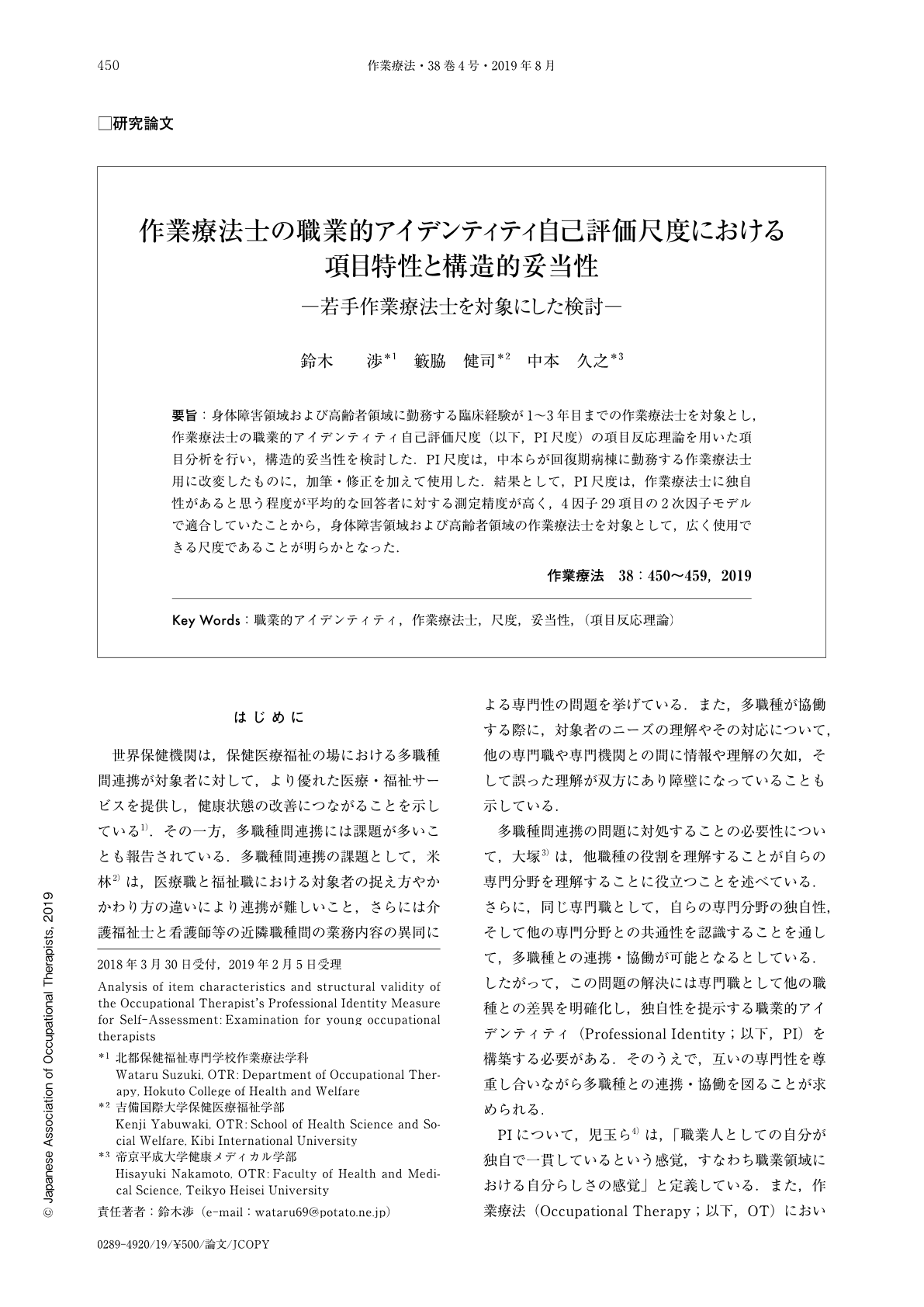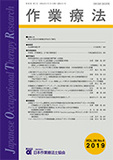Japanese
English
- 販売していません
- Abstract 文献概要
- 1ページ目 Look Inside
- 参考文献 Reference
- サイト内被引用 Cited by
要旨:身体障害領域および高齢者領域に勤務する臨床経験が1〜3年目までの作業療法士を対象とし,作業療法士の職業的アイデンティティ自己評価尺度(以下,PI尺度)の項目反応理論を用いた項目分析を行い,構造的妥当性を検討した.PI尺度は,中本らが回復期病棟に勤務する作業療法士用に改変したものに,加筆・修正を加えて使用した.結果として,PI尺度は,作業療法士に独自性があると思う程度が平均的な回答者に対する測定精度が高く,4因子29項目の2次因子モデルで適合していたことから,身体障害領域および高齢者領域の作業療法士を対象として,広く使用できる尺度であることが明らかとなった.
This study aimed to conduct item analysis based on item response theory as well as to examine the structural validity of the Occupational Therapist's Professional Identity Measure for Self-Assessment (PI measure). Participants were Registered Occupational Therapists in their first to third year of employment and who worked with the elderly and individuals with physical disabilities. The PI measure was revised by Nakamoto et al., with additions and corrections by the authors. Results revealed that the PI measure had a high measurement accuracy for respondents with average professional identities. The PI measure conformed to the higher-structure model. It fit with the second-order factor model of 29 items that were categorized into four factors;it is possible to use the PI measure for Registered Occupational Therapists who work with people with physical disabilities and the elderly.

Copyright © 2019, Japanese Association of Occupational Therapists. All rights reserved.


